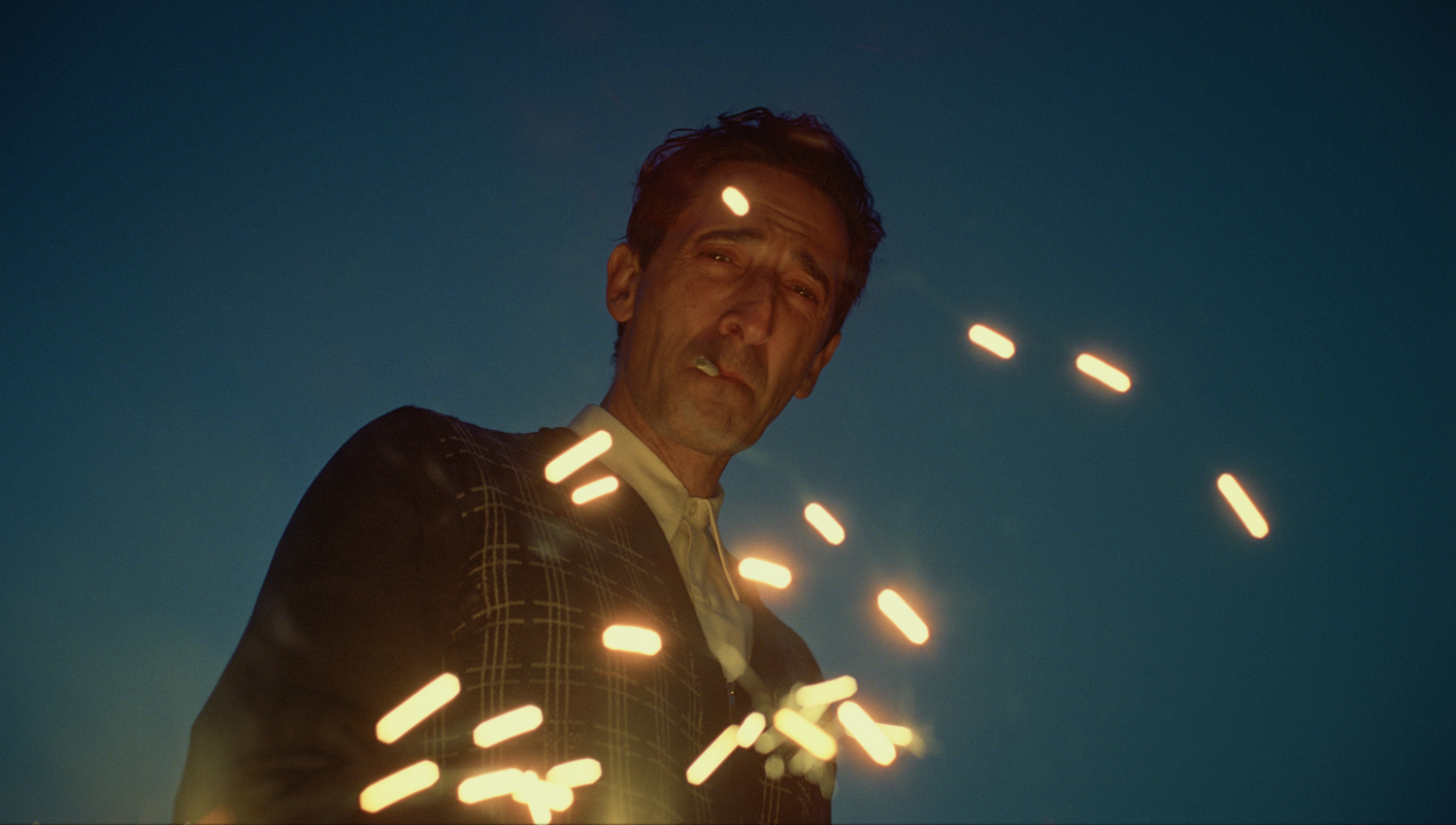
The Brutalist
James Brown
In The Brutalist, directed by Brady Corbet, architecture is not merely a backdrop but the scaffolding of the narrative—a haunting testament to both creative ambition and personal disintegration. Corbet, who made a name with Vox Lux and The Childhood of a Leader, delves into the story of László Toth (played with raw intensity by Adrien Brody), a Jewish architect who survives the Holocaust and migrates to America after World War II carrying with him the weight of his artistic vision and his traumatic past.
The Brutalist spans two decades, charting Toth’s slow rise in the American architectural scene against a backdrop of post-war disillusionment. The opening scenes, which follow László as he navigates the serpentine immigration process, establish the stakes. This film is not just about an immigrant seeking opportunity; it is about a visionary who must negotiate with the literal and metaphorical structures that define a new world.

Corbet’s direction is precise and unflinching. Watching this film, one feels like he carefully measured each shot and is much like architect László’s brutalist designs—stark, angular, and austere. Yet, what the film gains in visual clarity, it risks losing in emotional warmth. Corbet seems more interested in the existential weight of his protagonist’s journey than sentimentality. Toth is not easy to love, and the film doesn’t ask you to (No one in this film is particularly loveable). Toth’s single-minded pursuit of architectural purity, often at the expense of personal relationships, creates a study of obsession that is both compelling and alienating.
The film’s style echoes its title. The Brutalist is a 3-hour and 35-minute slow-burn, heavy with long, static shots that force viewers to soak in the meticulous, often cold environments. In the film, the concrete structure László designs—a community center for a small Pennsylvania town—becomes a metaphor for his own internal struggles.
“The Brutalist is a film about ambition and the cost of creating something truly original in a world that often demands conformity.”
There’s a scene halfway through where Toth stands before one of his unfinished buildings, the raw concrete exposed to the elements, and we understand that he’s building not only to serve the present community but to create something more timeless. Yet, after the intermission, the film’s second half falters, caught in the same rigid structure it so eloquently critiques. Corbet’s efforts to move the story along in time cause him to compress things noticeably. He reduces the complex relationships developed between Toth and the industrialist Van Buren (Guy Pearce) and later between Toth and his wife in the film’s first half to vignettes in the second half.
Brody’s performance is a highlight, conveying Toth’s desperation and ambition in equal measure. His eyes, shadowed and distant, reveal a man who is constantly calculating, reimagining the world as it could be rather than accepting it as it is. Felicity Jones, as Erzsébet, offers a needed warmth, a contrast to Toth’s clinical vision, though even she is not immune to the film’s oppressive atmosphere. Their relationship, marred by tragedy, compromise, and sacrifice, feels more like a business partnership than a marriage, and perhaps that’s Corbet’s point—love, like architecture, is built on compromise.
The Brutalist is a film about ambition and the cost of creating something truly original in a world that often demands conformity. It is also about the American dream—a concept dissected and examined through the eyes of an outsider who can never fully embrace it. The Brutalist is a cold but undeniably beautiful film, with stark cinematography that reinforces its themes. The use of shadows, concrete, and empty space reflects László’s own isolation, creating a world that is as elegant as it is unforgiving.
The film’s ambition is both its strength and its weakness. At times, it feels as if Corbet has fallen into the very trap his protagonist struggles against—making something that values form over function, aesthetics over emotion. But for those willing to engage with its steady, methodical storytelling, The Brutalist offers a striking meditation on the nature of art, ambition, and the price we are willing to pay for both. It may not leave you with a warm heart, but it will linger in your mind, much like the daunting structures László leaves behind.
Final Thought
A visually striking yet emotionally cold film.
